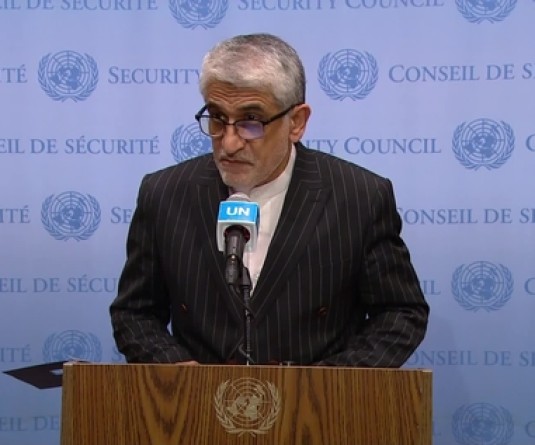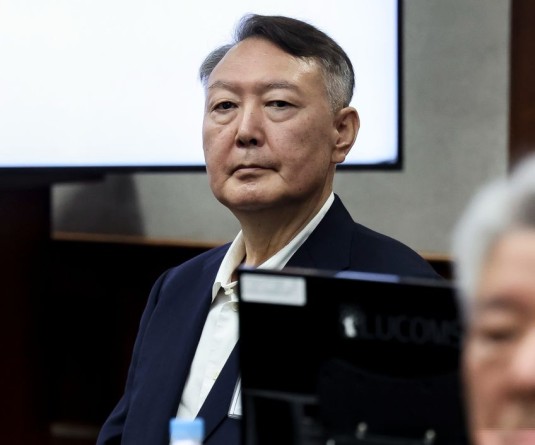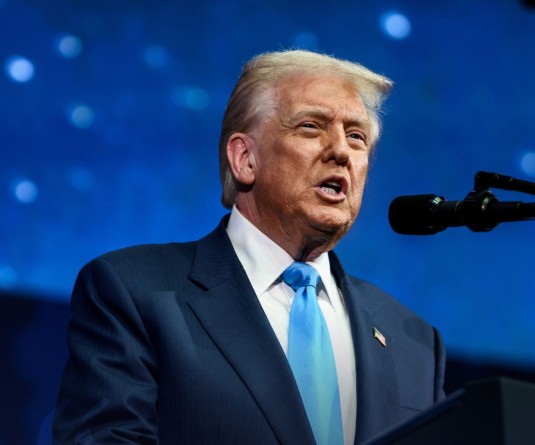Workers work on a board after the opening of temporary national security office, in Hong Kong, China on July 8. (REUTERS Photo)
HONG KONG, July 8 (Reuters): China opened its powerful national security office in Hong Kong on Wednesday, turning a hotel near a city-centre park that has been one of the most popular venues for pro-democracy protests into its new headquarters.
The office, which operates beyond the scrutiny of local courts or other institutions, will oversee the Hong Kong government's enforcement of the sweeping national security legislation that Beijing imposed on the city last week.
The legislation gives its agents, operating openly in the global financial hub for the first time, enforcement powers.
It allows them to take suspects across the border for trials in Communist Party-controlled courts and gives them special privileges, including that Hong Kong authorities cannot search or detain them, or even inspect their vehicles.
It was unclear how many mainland agents will be stationed in the former Metropark Hotel, a 266-room, 33-storey building in the shopping and commercial district of Causeway Bay, near Victoria Park.
At the opening ceremony, chief of the security office Zheng Yanxiong said he would enforce the law strictly "without infringing on the legitimate rights and interests of any individual or organisation".
Luo Huining, head of China's Liaison Office in the city, Beijing's top representative office, said the office was "the gatekeeper of national security" and people who loved China and Hong Kong welcomed it.
"Those with ulterior motives and who are anti-China and seek to destabilise Hong Kong have not only stigmatised the office, but also smeared the legal system and rule of law in the Chinese mainland in an attempt to stir up unnecessary worries and fears among Hong Kong residents," Luo said.
RED LINE
The new security law has pushed China's freest city onto a more authoritarian path and drawn condemnation from some Western governments, lawyers and rights groups.
It punishes acts of secession, subversion, terrorism and collusion with foreign forces with up to life in prison. Police have arrested at least 10 people, including a 15-year-old, under it for suspected threats to China's national security.
Critics fear it will crush coveted freedoms in the Chinese-ruled city, while supporters say it will bring stability after a year of sometimes violent protests that plunged the former British colony into its biggest crisis in decades.
Hong Kong and Beijing officials insist rights and freedoms would remain intact, but say national security is a "red line". The new security legislation has already started to change life in Hong Kong.
Hong Kong authorities on Wednesday banned school students from singing "Glory to Hong Kong", the unofficial anthem of the pro-democracy protest movement.
Secretary for Education Kevin Yeung said students should not participate in class boycotts, chant slogans, form human chains or sing songs that contain political messages, referring specifically to the popular protest anthem.
Books by some pro-democracy activists and politicians have been removed from public libraries. The "Liberate Hong Kong! Revolution of our times" slogan is now illegal. Activists have disbanded their organisations or fled. Shops have removed protest-themed products and decorations.
Chief Executive Lam has said the security law was mild compared with that of other countries, without naming them, but pro-democracy advocates say its contents are vague and worry about Beijing authorities having final interpretation rights.
In a reflection of the widespread unease over the legislation, major U.S. internet companies including Facebook, Microsoft, Google, Twitter and Zoom have announced they have suspended the processing of requests for user data from the Hong Kong authorities while they study it.
The United States has begun removing Hong Kong's special status in U.S. law as Washington no longer deems the global financial hub sufficiently autonomous from mainland China.






